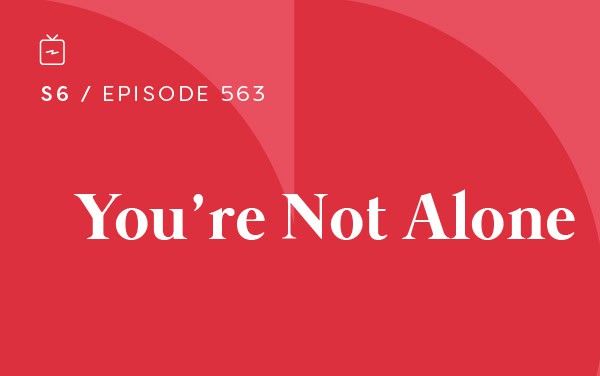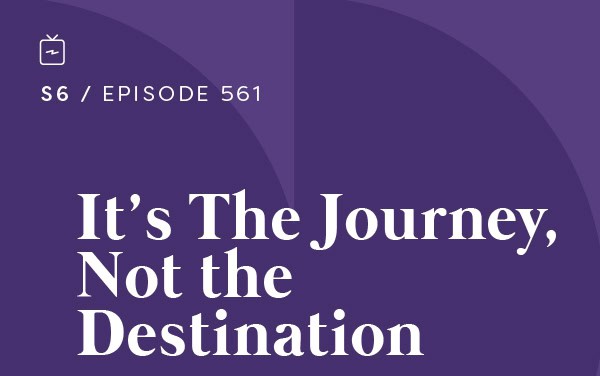
by Kris Oyen | Dec 15, 2025 | Podcast
Podcast: Play in new window | Download
Subscribe to the Recovery Elevator Podcast Apple Podcasts | | More
Today we have Nathan. He is 45 years old from Harrisburg, VA and took his last drink on January 24th, 2023.
This episode is brought to you by:
Better Help – 10% off of your first month #sponsored
Café RE – the social app for sober people
Get your 2026 started off poison free and join us for our Dry January course Restore at 8pm eastern time on January 1st. This is the first of 13 sessions throughout the month, and this course is all about accountability and having fun.
January 1st, 2026 is the official release date for Paul’s new book Dolce Vita both in print and audiobook. He would love to have you on the launch team. Email info@recoveryelevator.com to join.
[01:59] Thoughts from Paul:
When asked what recovery has made possible, today’s guest Nathan responded with the one word “everything” almost before Paul could finish the question.
The sobriety space, especially the 12-step world, is full of cheesy recovery slogan, but Paul shares one that he laughed at when he first heard it. The saying is, you’re giving up one thing for everything. And that one thing is alcohol.
If you ride a drinking problem long enough, it will take everything from your life. But when you quit, nearly everything that was taken will be returned. Not all in one day of course, but a life without alcohol will give you everything. More money, more sunsets, more time with aging parents, more memories, a better outlook on life and more growth.
[05:56] Paul introduces Nathan:
Nathan lives in Harrisonburg, VA where he works in the philanthropy space in higher education. He and his wife have two children, 11 and 14 years old. For fun, he enjoys spending time with his family and out in nature.
In high school, Nathan was very active in a variety of high school activities. Having a reputation to maintain, Nathan kept his drinking private. Nathan went on to college and says it was the typical experience with the exception of losing a friend to a drunk driving incident in which he feels partially responsible for.
While he used alcohol to cope with the pain of the loss, he also used the loss to propel him into trying to make changes in programs at school and how he approached is own drinking. Nathan still did much of his drinking in private because he knew he couldn’t drink how he wanted to in public.
Over the years, Nathan didn’t think he had a problem, but he was hiding the quantity he drank from everyone. Once COVID came, the isolation, the unknowns, and the loss of multiple family members found Nathan’s consumption changing a bit. He began to realize the behavior wasn’t normal but believed it was a moral failing, or lack of discipline rather than the alcohol being the source of the problem.
At 41, Nathan began to use health related goals as motivation to moderate. He didn’t drink daily, but when he drank it was with the intention to get drunk. After finding himself in handcuffs with his car in the ditch, he wanted nothing more than to just “fix it”. It was at this time when his wife approached him and said it was time for him to go to AA.
Nathan didn’t identify as an alcoholic and was initially resistant, but a voice in his head said he had no excuse not to go. Getting some great advice at the first meeting that really resonated with him, Nathan left with the Big Book and went on to attend 90 meetings in 90 days.
The first three months were all about survival for Nathan. After his legal troubles ended he had a shift from “I have to do this” to “I want to do this”. Recognizing that he could use his recovery to help others, he and some friends are trying to reach the younger demographic in his area. Service has become very important, and Nathan is now a sponsor for others in the AA space.
Nathan’s parting piece of guidance: You’re never going to wake up in the morning and regret not drinking the night before.
Recovery Elevator
You took the elevator down, you gotta take the stairs back up.
We can do this.
I love you guys.
RE on Instagram
Sobriety Tracker iTunes
RE YouTube

by Kris Oyen | Dec 8, 2025 | Podcast
Podcast: Play in new window | Download
Subscribe to the Recovery Elevator Podcast Apple Podcasts | | More
Today we have Yeimy. She’s 30 years old, from Rhode Island and took her last drink of alcohol on January 19th, 2025.
This episode is brought to you by:
Café RE – the social app for sober people
Better Help – 10% off of your first month #sponsored
January 1st, 2026 is the official release date for Paul’s new book Dolce Vita
and he’d love to have you on the launch team. Email info@recoveryelevator.com to join.
Registration for Recovery Elevator’s Dry January course Restore is open. We are meeting 13 times live in the month of January to give you the best chance of ditching the booze.
[03:30] Thoughts from Paul:
Paul shares with us a concept that he still struggles with but has made progress. It is embracing the world of duality that we live in. Of course, we would all want to be happy all of the time, but living in the world of dualities, we have to have opposites for defining purposes.
Do your best to embrace it all. Square your shoulders to this thing called life and don’t get attached to any of it. When you have a good day, be grateful. When you have a shit day, be grateful, knowing that you need them both equally.
[06:33] Paul introduces Yeimy:
Yeimy is 30 years old and works as a phlebotomist. Yeimy says she is still figuring out what she likes to do for fun but says she enjoys spending time with family and trying new things as in food or places.
Yeimy says she was born into alcoholism as both of her parents were heavy drinkers. She doesn’t specifically remember her first drink but was allowed to drink as a teenager when on vacation in the Dominican Republic.
In her early 20s, Yeimy worked in a bar and was able to drink on the job. Paired with other substances, Yeimy says her drinking became limitless. After COVID happened, she started drinking alone at home. Occasionally Yeimy would question how much she was drinking, but when she mentioned it to friends, they would reassure her that it was fine, and she was just having fun.
Over this time, Yeimy said she had a few small rock bottoms including a two-week hospitalization, crashing her car and waking up in strange places from time to time. She didn’t take the hint that she should stop the drinking and substance abuse and was determined to continue until something worse forced her to stop.
In 2022, Yeimy went to rehab. She says she wasn’t ready but due to the concern of a friend, she went for 30 days and was able to stay sober for another 30 days but became overwhelmed when she went right back into her life with the same people and places.
Yeimy attempted to moderate from time to time to try and avoid losing jobs and relationships like she had in the past. In 2024 while in the early days of her relationship with a non-drinker, Yeimy says she felt like her drinking was under a microscope. She would try to hide her drinking but that became exhausting. December 2024 found Yeimy having a lot of moments and mishaps that led her to realize she couldn’t do this anymore.
Yeimy began to go to AA meetings again but was still drinking. Her last rock bottom was when she fell asleep on the job the day after a blackout at a party. She was embarrassed and finally admitted to her boyfriend that she had a problem, and he said he would support her and she was relieved to have finally told him.
Whenever Yeimy felt the urge to drink, she attended meetings or listened to podcasts, staying focused on recovery for her first two months. With family support, she grew confident in her progress; she now works through AA steps with a sponsor.
Physically, Yeimy feels strong, and mentally she is more focused and decisive. Journaling, meetings, and connecting with sober people help her stay on track. She can now spend time around her drinking family, though she limits those interactions.
Yeimy’s parting piece of guidance: if you think you have a problem, you most likely do.
Recovery Elevator
You took the elevator down, you gotta take the stairs back up.
We can do this.
RE on Instagram
Sobriety Tracker iTunes
RE YouTube

by Kris Oyen | Dec 1, 2025 | Podcast
Podcast: Play in new window | Download
Subscribe to the Recovery Elevator Podcast Apple Podcasts | | More
Today we have Jack. He’s 39 years old from Phoenix, AZ and took his last drink of alcohol on June 23rd, 2025.
This episode is brought to you by:
Better Help – 10% off of your first month #sponsored
Sober Link – sign up and claim your $100 enrollment bonus
Registration for Recovery Elevator’s Dry January course Restore opens today. We are meeting 13 times live in the month of January to give you the best chance of ditching the booze.
Recovery Elevator now has its own coffee created with Rise Up Coffee Co. 25% of each bag sold will be donated to the nonprofit Café RE.
January 1st, 2026 is the official release date for Paul’s new book Dolce Vita.
[03:43] Thoughts from Paul:
Paul wants to do a check-in today. How are you doing at the end of 2025? How are you feeling after Thanksgiving and heading into Christmas? How are you feeling about yourself and your sobriety? This time of year can be a lot for many of us, but he wants to remind us all that we are not alone, even if you are listening to this podcast alone.
Our drinking problem likes to tell us that we are the only one in the world that has or has had struggles with alcohol, but that’s simply not true. More than ever are struggling, more than ever are quitting and more than ever are putting down the drink. Addiction wants us to feel alone. The first step is to recognize this voice; the next step is to join the growing movement into alcohol-free living. You are a part of this movement.
[08:42] Paul introduces Jack:
Jack is 39 years old and lives in Phoenix, AZ. He works as a trial attorney and outside of work likes to help community organizations. In his free time, Jack enjoys playing music and spending time in nature.
Jack was adopted as a baby after his birth mother arrived in the US from Mexico. His parents were very supportive and loving of Jack, but they share different viewpoints from him.
Jack says he had his first experience with alcohol two years before his first drink at age 16. After an argument with his mother about going to a friends house, Jack had stormed into his room enraged. As he sat with his big emotions, he had the thought of “I need a drink” for the first time. His first actual drink came at high school graduation and he felt the desire to cut loose for the first time.
The drinking started as a weekend activity, but Jack says he really took to it. Drinking didn’t make him tired; it energized him and took the stress away. Over the course of his college attendance, the weekend drinking with friends turned into daily drinking alone for Jack. He says he didn’t feel normal unless he had a buzz.
For Jack, he always knew that eventually his drinking would become a problem. He says at one point it was his dream goal to survive through the week with normal drinking and then have a weekend where he could get a lot of alcohol and just spend time by himself getting wasted.
Given his career as public defender, Jack found himself frequently helping others with addiction issues but was hesitant to do anything about his own thinking he would get around to it eventually.
A year before his quit date, Jack says he entered recovery. There were some traumatic events that found Jack moving out of the house he shared with roommates due to a disagreement and breaking up with a girlfriend. He moved back into his childhood bedroom and for the first time realized he wasn’t the victim in everything and had to take ownership of his part of things.
Jack decided it was time for change. He began doing the research, counting the days and celebrating the milestones. There were hiccups and Jack wants to remind those struggling that it is ok. We just keep trying and eventually we will get there. Jack says he identifies with the idea that in recovery we become better people than we were before.
Recovery Elevator
You took the elevator down, you gotta take the stairs back up.
We can do this.
RE on Instagram
Sobriety Tracker iTunes
RE YouTube

by Kris Oyen | Nov 24, 2025 | Podcast
Podcast: Play in new window | Download
Subscribe to the Recovery Elevator Podcast Apple Podcasts | | More
Today we have Emily. She is 43 years old from Sacramento, CA and took her last drink on December 20th, 2024.
This episode is brought to you by:
Better Help – 10% off of your first month #sponsored
Exact Nature – code RE20 saves 20% off your order
Registration for Recovery Elevator’s Dry January course Restore opens on December 1st. We are meeting 13 times live in the month of January to give you the best chance of ditching the booze. There are plenty of teachings throughout the month, but the best part of the course is that it’s community-based. It’s all about building connections over our shared interest of an alcohol-free life.
Costa Rica, February 21st – 28th, 2026. Two spots have opened up for our next Sober Travel Trip. Come join us!
[03:03] Thoughts from Paul:
Happy Thanksgiving to our American listeners! Paul is wishing everyone a week of peace, calm, turkey, pumpkin and hopefully whipped cream and lots of ice cream.
Paul was going to give us 10 tips to help you stay alcohol-free this week, but if you get this one right, then you should be ok… Somebody – ideally everybody – at your Thanksgiving dinner needs to know that you are not drinking or of your plans to stay sober. We at RE call this burning the ships and AA calls this radical honesty.
Ok, here’s a second tip – do your best to be thankful or find things to be thankful for. Thank the universe for your willingness to show up. For your willingness to listen to a podcast about making profound change. This shit ain’t easy.
Paul and the rest of us at RE are grateful for you all and for your support over the years.
THANK YOU!
[07:59] Paul introduces Emily:
Emily lives in Sacramento, CA with her husband and four children. She is a flower farmer. For fun, she enjoys playing music, spending time outside, talking to animals, reading and taking naps.
Emily only drank a handful of times prior to age 38. She was raised Mormon with a loving family in a small town outside of Yosemite. There was no exposure to alcohol for Emily growing up. She says every time she did drink she felt enormous guilt and shame due to her religion and the pressure to fit the mold of what she was expected to be.
Between the ages of 33 and 37, Emily and her husband started a charter school for the arts in California. It was very successful but was closed down after five years because of politics in the small town. Emily tried to be resilient and keep moving forward, but a series of personal blows to her and her family found them moving two hours away from family in friends because of a job.
Emily began to realize her life in the church wasn’t aligned with her personal values. Since they had moved away from family and friends, Emily decided to try “mommy wine culture”. She began drinking wine in a coffee mug after the kids went to bed in an effort to be discreet with it and enjoyed how it calmed her down and not think about everything that was going on.
Emily didn’t have much knowledge about how alcohol affected people, and her drinking progressed quickly. She decided to check into outpatient rehab in 2021 with the support of her husband. She had six months of sobriety and then thought she could moderate. That idea ended terribly one night in December 2024 when Emily got arrested for domestic violence.
After the incident, Emily and her husband separated and she was only saw the kids every other week. She drank a few times but decided it wasn’t worth it anymore. She began therapy to try and uncover why she felt the need to soften the edges of her life.
One of the many things that Emily feels she has gained in recovery is the ability to trust herself again. She and her husband have reconciled and are rebuilding a strong foundation. Emily says that in addition to therapy, she enjoys podcasts, reading quit lit, journaling and Refuge Recovery.
Recovery Elevator
It’s all about the journey and not so much the destination.
I love you guys,
Café RE
RE on Instagram
Sobriety Tracker iTunes
RE Merch
RE YouTube

by Kris Oyen | Nov 17, 2025 | Podcast
Podcast: Play in new window | Download
Subscribe to the Recovery Elevator Podcast Apple Podcasts | | More
Today we have Kevin. He is 48 years old and lives in Napa Valley, CA. He took his last drink on September 22nd, 2025.
This episode is brought to you by:
Better Help – 10% off of your first month #sponsored
Exact Nature – code RE20 saves 20% off your order
71% of Europeans are drinking less alcohol and the future generations are opting out in general, according to a new report for Circana.
[02:59] Thoughts from Paul:
On the last Sober Travel Trip to Peru this past October, Paul was reminded of one of life’s greatest teachings: it’s the journey that matters, and not the destination.
He tells us about how he and 16 other fellow travelers hiked the Inca Trail to go to Machu Picchu. After over 20 grueling miles, they found out at the gates that their tickets to explore this natural wonder weren’t valid for that day.
Everyone was understandably disappointed. Since everyone on the trip is in recovery, they already have been working on concepts such as surrender, embrace life on life’s terms and of course, to place more mental energy on the journey than the destination.
Paul says he will never forget how the group responded to receiving the bad news and it was one of the greatest gifts he has received while doing sober travel.
[08:34] Paul introduces Kevin:
Kevin lives in northern Napa Valley, CA but grew up in the Midwest. He and his wife have been together for over 30 years, and they have two teenage children, one dog and two cats. Kevin says he is between careers right now, but previously he worked in wine sales and in the tech industry. For fun, he enjoys playing music and is big into fitness.
Kevin grew up the youngest of three boys in a great community. Alcohol was always present, but he doesn’t recall any immediate family having issues with it. His first drinking experience was when he was in seventh grade when he and some friends raided his parents’ liquor cabinet. His brother confronted him about the drinking and warned him he shouldn’t be doing it.
Throughout high school, Kevin was so involved in sports and academics that he didn’t drink more than two times that he can recall. Kevin went to a small college where he met his wife and while he loved it there, he had to change schools for budget reasons. It was at the bigger school where his drinking took off, Kevin says.
Kevin’s parents moved to California and soon after Kevin also moved there. He says his drinking wasn’t a major issue through this time period until his dad passed away suddenly while in town for a visit. This was a turning point for not only Kevin’s drinking, but his brothers’ as well (who are now also in recovery).
Kevin was working for a tech company but was interested in getting into the wine industry after his wife started working in Napa Valley. This is where the conflict began for Kevin. He was drinking frequently after work and was around alcohol all the time. After leaving work he would practice with his band which would involve more drinking. He knew deep down that the way he was living wasn’t right.
Kevin began to see a therapist and started doing more research about drinking. He discovered Recovery 2.0 and a podcast episode he listened to was saying exactly what Kevin needed to hear, he says.
Kevin feels he had a spiritual awakening and couldn’t work in the wine industry anymore. He wants to dig into things that he is passionate about now – health and wellness, psychotherapies, and yoga teaching.
The last 30 days has Kevin feeling great. He is part of the Café RE community, and he says both the community and the podcast have been a great help to his success so far. He says he is working with a sponsor in AA, living sober out loud and says that his spirituality was the missing link in his life. He is passionate about it.
Kevin’s parting piece of guidance: if you are struggling, just keep digging inward.
Recovery Elevator
It’s all about the journey and not so much the destination.
I love you guys,
Café RE
RE on Instagram
Sobriety Tracker iTunes
RE Merch
RE YouTube







